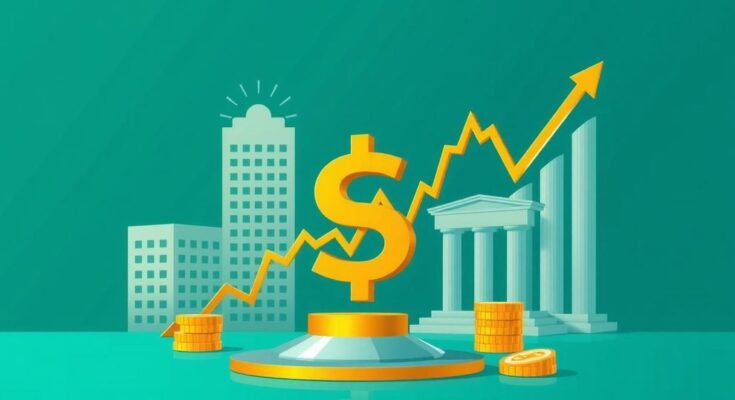Argentina is negotiating a $20 billion loan from the IMF as it faces economic turmoil and significant currency depreciation. The government is also seeking additional support from the World Bank and IDB. Amid ongoing protests and high inflation rates, President Milei aims to stabilize the economy, but challenges persist with multiple exchange rates and strong public opposition.
Argentina is currently negotiating a $20 billion loan from the International Monetary Fund (IMF) as the country grapples with a struggling economy and dwindling foreign reserves. Economy Minister Luis Caputo indicated that this request accompanies discussions for additional financial support from institutions like the World Bank and the Inter-American Development Bank.
The recent announcement coincides with a significant decline of over $1.2 billion in reserves amid a crisis surrounding the devaluation of the peso. It is crucial for the portfolio to receive board approval from the IMF, and while discussions for a sizable financing package are reportedly advanced, specific figures remain undisclosed.
Caputo clarified that the IMF loan aims to recapitalize the Argentine central bank, emphasizing it would not fund expenses directly. Argentina’s history with the IMF is extensive, having secured bailouts 22 times over the past several decades due to its status as a substantial debtor.
President Javier Milei, who assumed office in December, has proposed drastic fiscal measures to address high inflation and budget deficits. In recent months, the peso has depreciated approximately ten percent against the US dollar, adding to the challenges faced by Milei’s administration. Currently, Argentina owes approximately $44 billion to the IMF from a significant loan agreement established in 2018.
Argentina faces one of the highest inflation rates globally; however, there has been a notable decline from 211 percent year-on-year at the close of 2023 to 84.5 percent in January under Milei’s governance. His administration emphasizes that a new deal with the IMF will help eradicate high inflation, which he aims to make “only a bad memory.”
Despite these efforts, the government has encountered protests, inciting responses from various societal groups, including unions and football fans. Tensions escalated earlier this month, leading to violent confrontations with law enforcement and prompting the CGT union to call for a general strike scheduled for April 10.
The disparity of exchange rates, including a burgeoning black market for the US dollar, highlights the economic struggles faced by many Argentinians. Currently, the ‘blue’ dollar is valued at over 1,300 pesos, whereas the official rate lingers at 1,091 pesos, creating an unprecedented gap under current economic conditions. The government is struggling to implement foreign exchange controls lifted in 2018 due to the ongoing scarcity of foreign currency.
In summary, Argentina seeks a substantial $20 billion loan from the IMF to stabilize its economy and recapitulate its central bank in light of significant reserve depletion and currency instability. The administration of President Milei is under pressure due to high inflation, ongoing public protests, and the need to address pressing fiscal challenges. The successful negotiation of this loan, coupled with potential support from other financial institutions, is critical for Argentina’s economic recovery.
Original Source: www.victoriaadvocate.com




